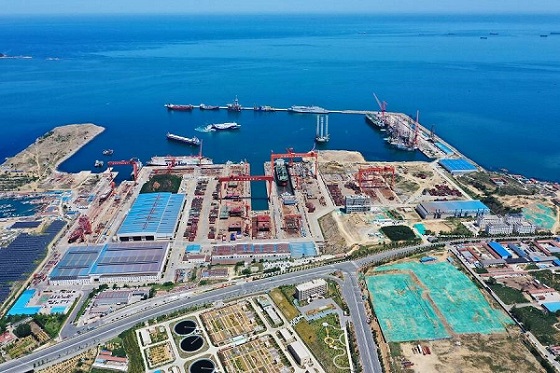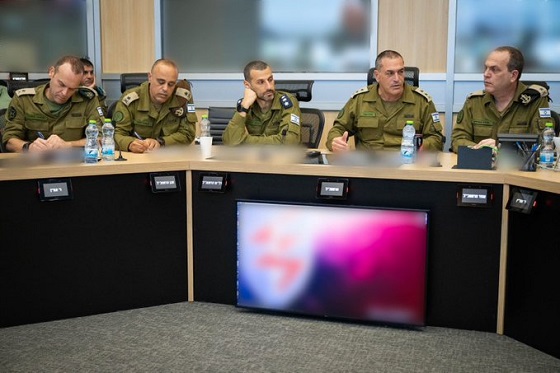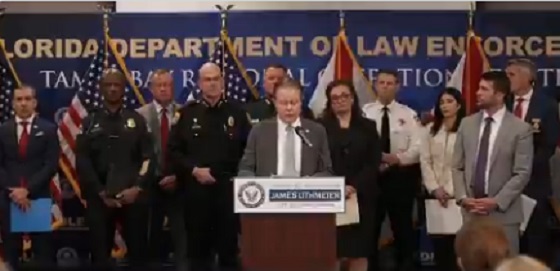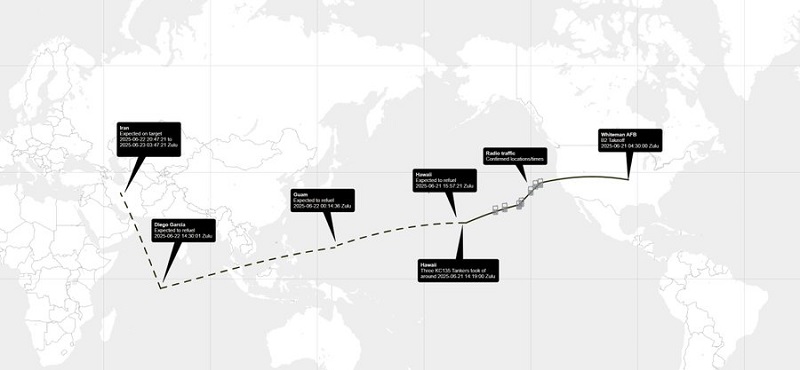espionage
Republican congresswoman introduces bill to repeal Patriot Act

From LifeSiteNews
U.S. Representative Anna Paulina Luna has introduced a bill, the American Privacy Restoration Act, that aims to repeal the Patriot Act, passed in 2001.
The Florida Republican believes that what has in the meantime become the notorious post-9/11 legislation, has been abused by “rogue” intelligence officers to carry out mass surveillance in unlawful ways.
READ: Former US official exposes globalist plan to push Americans into ‘digital concentration camp’
Announcing the bill, Luna mentioned that the Patriot Act has over the last decades been used to interfere in elections, violate innocent Americans’ privacy by spying on them, and even “settle personal scores.”
We obtained a copy of the bill for you here.
According to the representative, the ability to misuse and abuse the Patriot Act in such a way turned it into a tool for what is known as “the deep state” – whereas her legislative proposal seeks to take away the ability of these permanent power centers to violate the Fourth Amendment, that should protect against unreasonable searches and seizures.
Like a number of other laws, in particular those supposed to regulate intelligence and broader national security work, on paper, the Patriot Act’s condensed purpose is uncontroversial: to expand law enforcement powers, so as to “enhance the federal government’s efforts to detect and deter acts of terrorism in the United States or against United States’ interests abroad.”
READ: Attorney warns of Big Tech CEO’s vision of AI surveillance: ‘Ultimate form of tyranny’
However, on closer inspection – even before the law’s subsequent slide into controversy – it quickly became clear that the expanded powers were too broad and went beyond surveillance itself, to allow for warrantless searches in some cases, more “information sharing,” as well as access to business records.
Critics have been saying that since 2001, the Patriot Act has been turned against Americans themselves, and used as an excuse to subject even those not suspected of any wrongdoing to mass surveillance, all the while sidestepping the necessary guardrails and oversight.
Luna believes this has produced “the most sophisticated, unaccountable surveillance apparatus in the Western world.” And she believes it is necessary to act now to rectify this situation.
“It’s past time to reign in our intelligence agencies and restore the right to privacy. Anyone trying to convince you otherwise is using ‘security’ as an excuse to erode your freedom,” the legislator is quoted as saying.
READ: Congress needs to enact laws protecting us from illegal government surveillance
One of Luna’s unlikely – for political and ideological reasons – allies is the American Civil Liberties Union (ACLU), which has been pushing for reforms of the Act, reminding of the fact that when it was first passed in October 2001, many members of Congress admitted to not having read the bill before voting for it.
According to the ACLU, there were “intimations from the Bush administration that those who voted ‘no’ would be held responsible for further (terror) attacks.”
Reprinted with permission from Reclaim The Net.
Business
While China Hacks Canada, B.C. Sends Them a Billion-Dollar Ship Building Contract

This is like finding out your house was broken into and, instead of calling the cops, you hire the burglar to remodel your kitchen because he offered a good price.
Just days—days—after British Columbia Premier David Eby shrugs off federal concerns over awarding a billion-dollar ferry contract to China, and I’m quoting here, tells Ottawa to “honestly, just mind your own business”… we learn that China is hacking Canadian telecommunications infrastructure.
Let that sink in.
So here’s the story. British Columbia, a province of Canada that still pretends to care about sovereignty and jobs—just handed a massive, publicly funded ferry contract to China. Yes, China. Not a B.C. shipyard. Not a Canadian company. But a Chinese Communist Party–owned industrial complex. Because apparently, in the year 2025, a G7 nation that once built warships and railroads can’t even build a ferry. The country that designed the Avro Arrow now outsources its boatbuilding to Beijing.
Why? According to BC Ferries, the Chinese bid was the “strongest” and “most cost-effective.” Translation: they were the cheapest totalitarian regime available.
And to justify that? We’re told Canadian shipyards didn’t even bid. Why? Because they don’t have the “capacity.” Which sounds an awful lot like: we’ve let this industry rot for decades and now we’re pretending it’s just the market doing its thing.
Now, Premier Eby didn’t deny it. He didn’t fight it. He didn’t try to fix it. He just said, “It’s not ideal. But it’s too late.” Five years of procurement, so we’re locked in. No turning back. As if surrender is somehow a neutral policy.
And Chrystia Freeland? She called it “dismaying,” which is Canadian for we’re not going to do a thing about it. No federal funding, she said, and please make sure it’s cybersecure. From a Chinese state firm. Sure.
Meanwhile, here’s the part no one wants to say out loud: China is actively attacking Canada’s digital infrastructure. This isn’t some distant cyber operation. It’s happening now. Salt Typhoon, a Chinese state-linked group, exploited a Cisco vulnerability to compromise three core telecom devices. They siphoned data. Created a GRE tunnel. Pulled configuration files. They were inside the system. Watching. Collecting. Spying.
And while that’s going on, B.C. writes them a check.
This is like finding out your house was broken into and, instead of calling the cops, you hire the burglar to remodel your kitchen because he offered a good price.
Now business analysts, the same people who said NAFTA would be great for everyone, argue this is “industry standard.” They point out Canadian firms have used Chinese shipyards for years. Yes—and look where that got us. No shipbuilding capacity, no strategic leverage, and no national pride.
BC Ferries insists it’s not a total sellout. They’re spending $230 million on local refits and maintenance. Great—so we send the billion overseas and toss the leftovers to local workers. That’s not industrial policy. That’s industrial hospice care.
Unions and domestic builders like Seaspan have said clearly: We can do the work. We want to build. But they need policy. They need backing. And instead of standing up and saying, “Let’s build ships in Canada again,” David Eby shrugs and signs the dotted line.
And what does B.C. Premier David Eby say when the federal government dares to ask a reasonable question—like, “Hey, is sending a billion-dollar infrastructure deal to a Chinese state-owned company while China’s hacking your telecoms and stealing your IP a smart move?”
Eby’s response?
“Honestly, just mind your own business.”
That’s not spin. That’s what he said—on the record, during a Jas Johal radio interview. He told Ottawa, Chrystia Freeland, and every single Canadian taxpayer footing the bill: Stop asking questions. Don’t expect accountability. Just sit quietly and watch us outsource the building blocks of our own sovereignty to an authoritarian regime.
Eby then admits—almost casually—that the deal is “not ideal.” Right. Because funneling public funds to a hostile regime that’s openly undermining your democracy and infiltrating your critical infrastructure isn’t ideal. But he claims the decision can’t be reversed. Why? Because it would cost too much, and we don’t have the capacity to build our own ferries anymore.
Let that sink in. This isn’t Somalia. This is Canada. A G7 country. And the Premier of one of its most important provinces is now saying: We’re too broken to build ferries, so let the CCP do it.
While B.C. writes checks to a Chinese Communist Party–controlled shipyard to build vessels for public service, Chinese state-sponsored hackers are already inside Canadian networks—pulling data, monitoring traffic, and spying on political officials. These aren’t amateur criminals. These are agents of a foreign authoritarian regime. And they’re not looking for cat videos. They’re not trying to intercept your hockey stream. They’re looking for call metadata, SMS content, real-time location tracking, and political communications. You know, espionage.
This isn’t some speculative post from a blog or a heated Reddit thread. This is straight from a government-issued cyber intelligence bulletin, published on June 19, 2025, by the Canadian Centre for Cyber Security, Canada’s frontline cyber defense agency, in collaboration with the FBI. The bulletin confirms that a sophisticated Chinese state-sponsored threat actor, known as Salt Typhoon, orchestrated a targeted cyberattack in mid-February 2025, exploiting vulnerabilities in Cisco’s IOS XE software to infiltrate critical telecommunications infrastructure in Canada.
Specifically, Salt Typhoon zeroed in on a critical flaw, CVE-2023-20198, which allowed them to gain unauthorized access to three network devices registered to a major Canadian telecom provider. For those unfamiliar, this vulnerability is a remote code execution flaw that grants attackers admin-level privileges—essentially handing them the keys to the network. Once inside, they didn’t just poke around. They retrieved sensitive configuration files, which are like the blueprints of a network’s operations, and modified at least one to establish Generic Routing Encapsulation (GRE) tunnels. If you’re not a techie, GRE tunnels are a clever technique to create virtual pathways that bypass standard security controls, allowing attackers to quietly siphon off network traffic—think of it as tapping a phone line, but for entire data streams.
This wasn’t a smash-and-grab job. The bulletin details how Salt Typhoon’s actions were methodical, aimed at enabling long-term surveillance and data collection. By rerouting traffic through these GRE tunnels, they could access bulk customer data, including call metadata, location information, and potentially even the content of SMS messages or other communications. The targets? High-value individuals, such as government officials and political figures, whose data could fuel China’s broader espionage objectives. The bulletin warns that this is part of a global campaign, with similar attacks hitting telecoms in the U.S. and dozens of other countries, compromising providers like AT&T and Verizon.
The Canadian Centre for Cyber Security doesn’t mince words: Salt Typhoon is “almost certainly” backed by the People’s Republic of China, and their campaign is expected to persist, targeting Canadian organizations, especially telecoms and their clients, for the near and present future.
Now here’s where it gets interesting. Or infuriating.
Let’s look at CSIS’s own public report, released in 2024. Salt Typhoon isn’t named, no. But China is named. Over and over. Page 6 reads like a war warning that no one in Ottawa even bothered to read. It says, and I quote, “The People’s Republic of China continues to engage in sophisticated espionage and foreign interference… especially in critical mineral sectors and technology supply chains.”
Translation? They’re not just watching your data—they’re coming for your economy, your elections, and your sovereignty. This is more than cybercrime. This is geopolitical warfare. And China is winning because we’re too weak or too afraid to say no.
The CSIS report goes on: Chinese actors are infiltrating elections, immigration channels, even using AI and front groups to manipulate discourse and policy. Not someday. Now. Right now.
Let’s be completely clear: In February, China penetrated Canadian telecom infrastructure.
In June, we paid them to build ships.
How is that not a national scandal?
How do you allow that?
This is the collapse of common sense in real time. National security is not a partisan issue. It’s not theoretical. It’s not about trade. It’s about who holds the keys to your data, your infrastructure, and your future.
And right now, Canada’s government—and yes, its provinces—are not just letting that fall into China’s hands. They’re delivering it.
On a silver ferry.
Let that sink in.
Now ask yourself—what exactly are we getting in return? Where’s the national benefit? Where’s the plan? Where’s the damn spine?
David Eby says “BC First” like it means something. But how does it square with shipping public contracts straight to Beijing while China’s hacking your telecoms and eyeing your elections? You can’t call it “BC First” when you’re literally bankrolling Chinese state-owned industry while Canadian shipyards rot on the sidelines. That’s not leadership. That’s surrender.
And here’s the kicker—Eby’s been in multiple meetings with the feds. Four major First Ministers’ meetings, plus two sit-downs with Mark Carney, the man Liberals are touting as their next economic messiah. And you’re telling me not one person at those tables could put two brain cells together and say:
“Hey Mark, B.C. needs ferries. You want a manufacturing revival. Let’s cut a deal. You give us federal subsidies, we build these ships here at home. Yeah, it costs more up front, but it proves we’re serious about national industry. And we’re not handing vital infrastructure contracts to the same regime that’s compromising our telecoms and undermining our democracy.”
Would that not be common sense? Apparently not—because neither Carney nor Eby made that deal. They let it slide. They let the CCP win a contract while Salt Typhoon was actively hacking Canada’s backbone.
That’s not “hard choices.” That’s strategic failure. It’s cowardice masked as pragmatism.
Eby isn’t a dealmaker. He’s a decline manager. He’s the guy who shrugs and says, “Well, we can’t do it here,” and then signs a billion-dollar check to a foreign power with no accountability, no dignity, no leverage.
And Carney? The guy trying to pitch himself as the future of Canada’s economic revival? The guy who says we need to build, invest, strengthen? He let this go. Either he didn’t care, or he wasn’t paying attention. Either way—it’s incompetence at the highest level. And it proves the Liberals and the B.C. NDP are fully aligned in managing decline, not reversing it.
They told us Donald Trump was the threat. They told us he would sell out our values, undermine democracy, and abandon national interests. David Eby said it. Mark Carney echoed it. They told you they were the adults in the room—the ones who would put Canada first.
And what did they actually do?
They handed a billion-dollar public contract to a Chinese state-owned shipyard—while China is actively hacking our telecom networks and undermining our elections. They outsourced jobs, security, and dignity to the same regime their own intelligence agencies are warning us about.
David Eby said “BC First.” Mark Carney talks about reviving Canadian industry. But when the opportunity came—when they could have drawn a line, invested in our workforce, and told Beijing “no”—they caved. They chose cheap. They chose weak. They chose decline.
This is not leadership.
It’s not “strategic.”
It’s not “pragmatic.”
It’s pathetic.
And if this is what the NDP and Liberal vision looks like—deals for China, excuses for inaction, and silence while Canadian industry is gutted—then it’s time for an election.
We need real leadership. We need people who will fight for Canadian workers, Canadian infrastructure, and Canadian sovereignty. Not performative speeches. Not hollow slogans. Results. Accountability. Courage. This government has failed. Let the people decide. Call an election—before we lose more than just jobs and we can let someone lead who actually wants to make Canada First.
Subscribe to The Opposition with Dan Knight .
For the full experience, upgrade your subscription.
Business
Ottawa Slams Eby Government Over Chinese Shipyard Deal, Citing Security and Sovereignty Risks

 Sam Cooper
Sam Cooper
Western security analysts have warned that China’s commercial shipyards routinely serve dual-use purposes, supporting both civilian contracts and the expansion of the People’s Liberation Army Navy. A 2024 report by the Center for Strategic and International Studies warned that foreign customers contracting with Chinese state-owned shipbuilders may be inadvertently “subsidizing the growth of China’s naval power.”
Stung by a political firestorm over his provincial government’s decision to hand a massive shipbuilding contract to Chinese suppliers that critics say could bolster Xi Jinping’s military capabilities and undermine Canadian national security, B.C. Premier David Eby late Friday night reluctantly released a searing letter from federal Transport Minister Chrystia Freeland.
The letter, dated June 16 and addressed to B.C. Transportation Minister Mike Farnworth, expresses Freeland’s “consternation and disappointment” over BC Ferries’ decision to select China Merchants Industry Weihai—a subsidiary of a state-owned Chinese conglomerate closely tied to Beijing’s military-civil fusion strategy and Belt and Road Initiative—to build four new major vessels.
“I am dismayed that BC Ferries would select a Chinese state-owned shipyard to build new ferries in the current geopolitical context,” Freeland wrote. She demanded that Farnworth “verify and confirm with utmost certainty that no federal funding will be diverted to support the acquisition of these new ferries.”
Freeland emphasized that the Government of Canada has provided “long-standing financial support” to British Columbia’s ferry system, including “approximately $37.8 million” annually under a 1977 agreement, $308 million to cover pandemic-related operating losses, and “a $75-million loan to BC Ferries to help purchase four net-zero emission ferries.”
“Given the value of the contract and the level of taxpayer funding that has been provided to support BC Ferries’ operations,” Freeland wrote, “I am surprised that BC Ferries does not appear to have been mandated to require an appropriate level of Canadian content in the procurement or the involvement of the Canadian marine industry.”
The letter, which had been withheld by Eby’s government for nearly a week, was quietly released to the public just before midnight Eastern Time Friday—only after repeated demands in Parliament by Conservative MP Dan Albas, who posted on social media: “People deserve that transparency.”
The political backlash mounted swiftly following Eby’s disclosure of the deal with China. BC Conservative leader John Rustad accused Eby and BC Ferries of failing to account for the broader strategic risks of contracting with a Chinese state-owned entity during a period of rising global tensions.
“There’s lots of rhetoric going back and forth between the United States and China, friction with Taiwan,” Rustad told Postmedia. “Who knows what may happen? Hopefully nothing by 2029 to 2031, which is when these ships are going to start to be constructed and delivered.”
It’s not a far-fetched concern. During the COVID-19 pandemic, Prime Minister Justin Trudeau’s government entered into a vaccine partnership with CanSino Biologics—a company with links to China’s People’s Liberation Army—only for Beijing to block shipment of the vaccine, abruptly collapsing the deal.
In her June 16 letter, Freeland warned the B.C. government that “ongoing concerns regarding threats to security, including cybersecurity, from China” required urgent attention. She asked for clear commitments that BC Ferries had conducted “a robust risk assessment” and demanded to be informed of the steps being taken to “reduce the risks of outside influence or control from cybersecurity vulnerabilities,” and to “mitigate the risks that vessel maintenance and spare parts may pose.”
Freeland further linked the deal to Beijing’s retaliatory economic measures, writing, “China has imposed unjustified tariffs on Canada, including 100% tariffs on canola oil, meal, and pea imports, and a 25% duty on Canadian aquatic products and pork. These tariffs have affected about 36% of Canadian agriculture businesses and are directly impacting the livelihood of Canadians.”
China Merchants Industry Weihai is a subsidiary of China Merchants Group, a massive state-owned enterprise that has played a central role in advancing Beijing’s Belt and Road Initiative since 2013. The conglomerate operates ports and shipyards across Asia, Europe, and Africa—including strategic holdings in Greece, Lithuania, Nigeria, and Djibouti—and is a central player in the Chinese Communist Party’s military-civil fusion strategy.
Western security analysts have warned that China’s commercial shipyards routinely serve dual-use purposes, supporting both civilian contracts and the expansion of the People’s Liberation Army Navy. A 2024 report by the Center for Strategic and International Studies warned that foreign customers contracting with Chinese state-owned shipbuilders may be inadvertently “subsidizing the growth of China’s naval power.”
Valued in the hundreds of millions, the contract will see the Chinese yard begin delivering the vessels between 2029 and 2031.
Rustad further told Postmedia that the province’s reliance on foreign state-controlled suppliers for strategic transportation infrastructure was “not just irresponsible, it’s a betrayal of Canadian workers and economic independence.”
The BC Federation of Labour has also raised concerns about the use of public money to finance offshore contracts that benefit authoritarian regimes, and Canadian maritime industry groups have renewed calls for a federal policy mandating domestic content in major shipbuilding procurements.
First established in 2016 under then-premier Christy Clark through a Memorandum of Understanding with China’s Guangdong province, the B.C.–Belt and Road Initiative pact laid the groundwork for collaboration on maritime trade, infrastructure, and shipbuilding with Chinese state-owned firms. Those ties expanded under Premier John Horgan, whose NDP government promoted deeper bilateral economic relations. The BC Ferries procurement—while legally made by an independent board—proceeded within a framework Premier Eby’s administration continues to support.
New research reported by The Bureau and published by the Washington-based Jamestown Foundation adds a sharp dimension to these concerns. The Foundation warns that criminal and political networks promoting Xi Jinping’s Belt and Road Initiative have been linked to Chinese transnational organized crime and covert Communist Party influence operations.
According to the report, a global syndicate known as Hongmen—also referred to as the Chinese Freemasons—has been deeply embedded in both criminal activity and Beijing’s “united front” operations, which support the CCP’s geopolitical aims including the annexation of Taiwan and BRI expansion.
“The organization’s sprawling structure includes affiliated offices across the globe from Hong Kong and Nairobi to Toronto and Madrid,” the report states. “The Chinese Communist Party has turned a blind eye as Hongmen ventures have expanded across One Belt One Road countries, in part because these organizations serve the purposes of united front work.”
The Jamestown Foundation’s findings echo longstanding concerns within Canada’s intelligence community regarding BRI-linked actors and opaque Chinese political networks operating in the country—especially in British Columbia, which remains the only jurisdiction in North America to have signed a formal Belt and Road agreement with Beijing.
Premier Eby has not apologized for the decision. He told reporters last week that the province would not interfere with BC Ferries’ independent board, which selected the Chinese yard based on cost and delivery timelines.
Whether mounting federal pressure and scrutiny from security experts will force a review remains an open question.
The Bureau is a reader-supported publication.
To receive new posts and support my work, consider becoming a free or paid subscriber.
Invite your friends and earn rewards
-

 Bjorn Lomborg2 days ago
Bjorn Lomborg2 days agoThe Physics Behind The Spanish Blackout
-

 Alberta1 day ago
Alberta1 day agoSo Alberta, what’s next?
-

 Business2 days ago
Business2 days agoWhile China Hacks Canada, B.C. Sends Them a Billion-Dollar Ship Building Contract
-

 Business13 hours ago
Business13 hours agoFederal government should finally cut Trudeau-era red tape
-

 Health1 day ago
Health1 day ago‘Transgender’ males have 51% higher death rate than general population: study
-

 COVID-1911 hours ago
COVID-1911 hours agoOntario man launches new challenge against province’s latest attempt to ban free expression on roadside billboards
-

 conflict1 day ago
conflict1 day agoDespite shaky start, ceasefire shows signs of holding
-

 Crime2 days ago
Crime2 days agoFlorida rescues 60 missing kids in nation’s largest-ever operation





